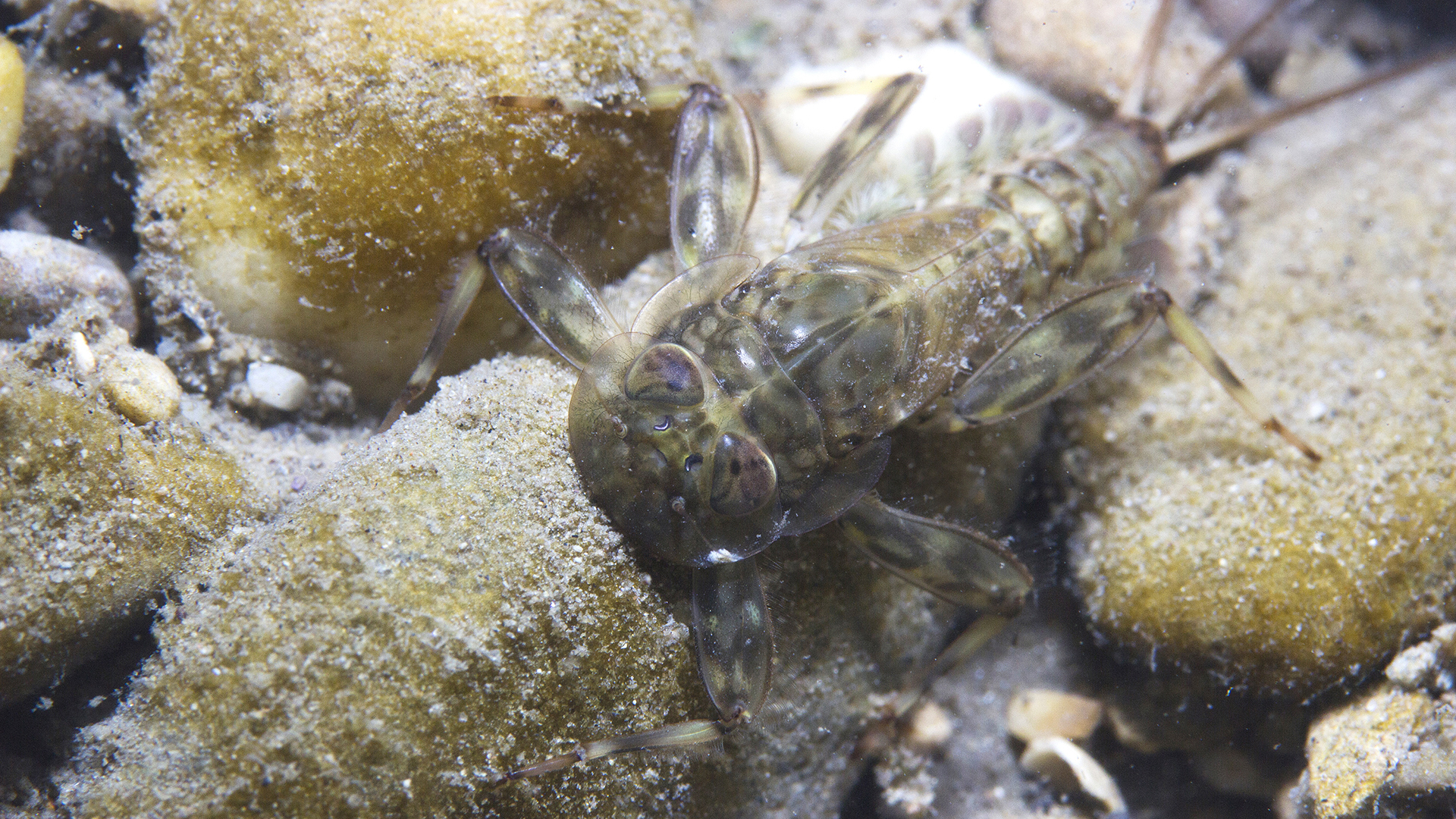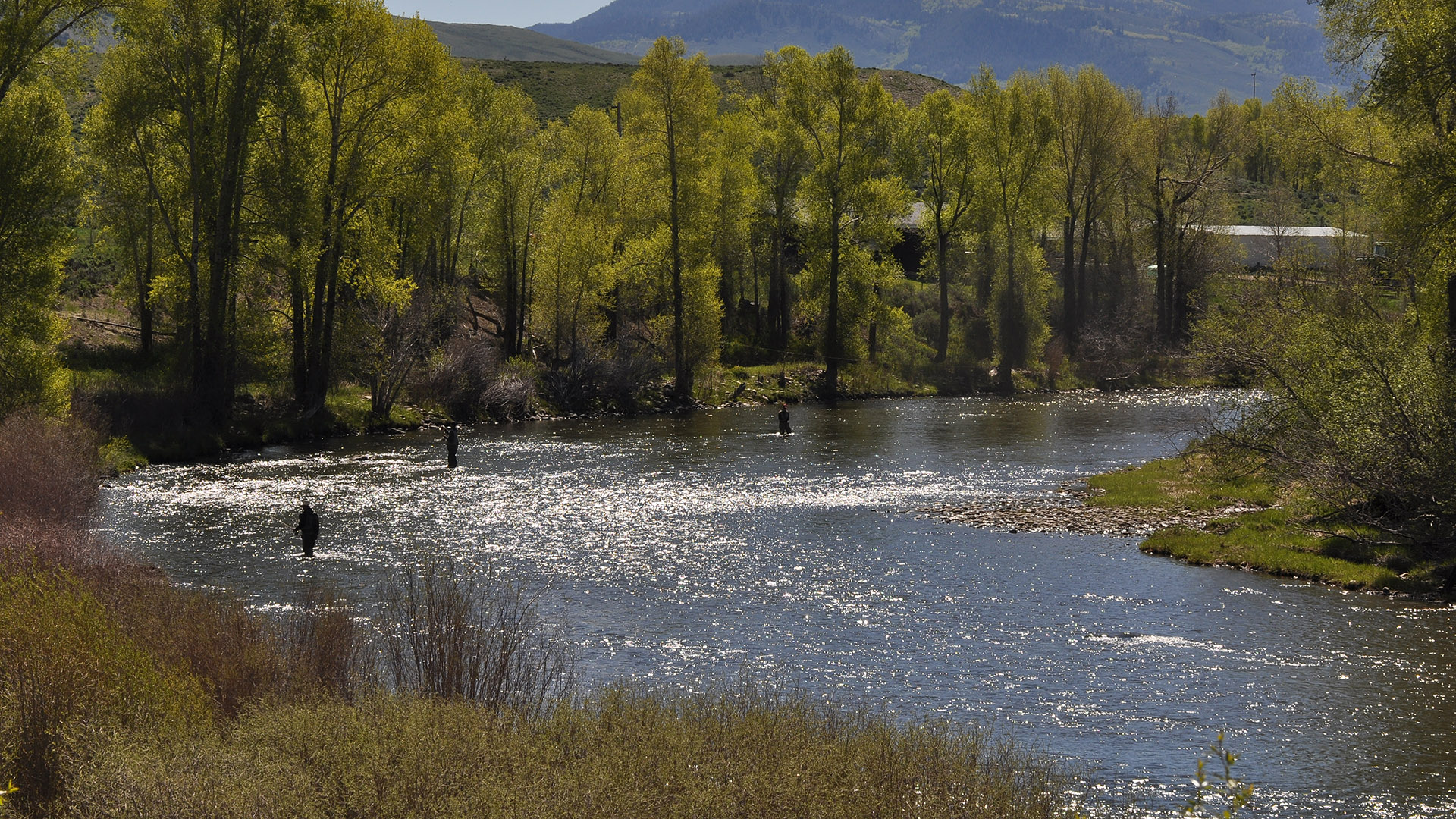Aquatic Life
The Insects That Live in Our Waters
Macroinvertebrates are aquatic organisms without a backbone, large enough to be seen with the naked eye, that live on the bottom of streams and rivers. Beetles, caddisflies, stoneflies, mayflies and dragonflies are some examples of common macroinvertebrates.
Macroinvertebrate communities are found in most streams and rivers and play a vital role in the ecology of stream ecosystems. They are sensitive to a range of environmental disturbances and pollution. While water quality monitoring provides a snapshot of conditions at a specific time, monitoring the health of the macroinvertebrates is a better indicator of fluctuating environmental conditions as they integrate the effects of various influences over time in a way that cannot be captured with discrete water quality samples. Changes in macroinvertebrate communities signal whether there might be impacts from population growth, urban development, land use changes and changes in the riparian habitat or stream channel. Community diversity and presence (or absence) of certain sensitive species are indicators of the biological and ecological health and integrity of the rivers.

Northern Water collects and identifies macroinvertebrates at approximately 20 East Slope and West Slope stream locations. The data is used to:
- Assess compliance with Colorado’s aquatic life standard;
- Assess existing state of aquatic ecosystems related to the C-BT and Windy Gap projects;
- Monitor trends and changes in the health of those aquatic ecosystems; and
- Monitor and assess potential impacts of C-BT and Windy Gap operations on the health of aquatic ecosystems.
At most sites, sampling occurs every three to five years before spring runoff and at low flows in September or October. Annual sampling is performed on select sites on the Colorado River. The program cost varies between $10,000 and $60,000 depending on the number of sites sampled in a given year. Data readings have been collected since 2008.

Macroinvertebrates Monitoring Data
Northern Water conducts Macroinvertebrates Monitoring for the C-BT Project and the Colorado River.
